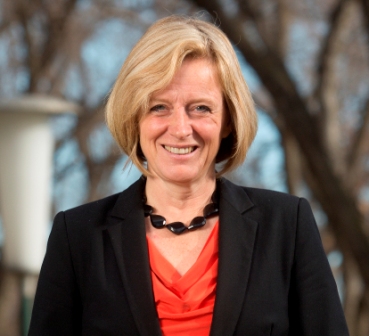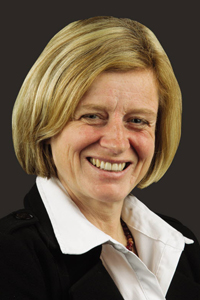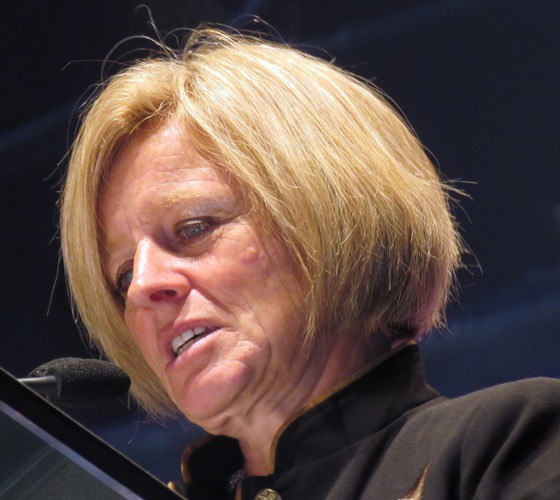On June 2, 2015 the Truth and Reconciliation Commission met in Ottawa and delivered facts that many Canadians already knew: the 120 year reign of the former Indigenous work camps and Indian Residential School system amounted to what the TRC called “cultural genocide.”
Many Canadians, including Alberta Premier Rachel Notley, were oblivious to the extent of the abusive and intolerable conditions beset upon young Aboriginal children by administrators who hid behind the power of government and the inquisition-like tactics utilized by the religious entities that “cared” for the children they forced into the schools.
“We were shocked and at times rendered speechless as we learned of the First Nation, Métis and Inuit children forcibly removed from their homes, placed beyond the protection and love of their families,” stated the premier while making an apology on behalf of the Alberta government in a speech from the provincial legislature on June 22. “Although the province of Alberta did not establish this system, members of this chamber did not take a stand against it. For this silence, we apologize.”
From the mid 1870s until the last school closed its doors in 1996 more than 150,000 Aboriginal children aged 4-16 were placed into the schools; over 6,000 children died in them. Today less than 12,000 victims/survivors remain alive, many in mental, physical and emotional limbo created by the atrocities they and their family members suffered through.
“We felt deeply for the adults who shared their journey to come to terms with the broken child within. They have given us their truth. Now, as Albertans and Canadians, it is up to us to become a part of this healing journey – through acts of reconciliation. Alberta is ready to follow this path. As our first step, we want the First Nation, Métis and Inuit people of Alberta to know that we deeply regret the profound harm and damage that occurred to generations of children forced to attend residential schools.”
During her apology Premier Notley addressed the issue of missing and murdered Aboriginal women and in doing so reversed the position taken by former premier Jim Prentice, who stated that he was not in favour of a national inquiry.
“I want the issue of missing and murdered Aboriginal women to come out of the shadows and be viewed with compassion and understanding in the clear light of day,” Ms. Notley said. “Alberta joins the call for a national Inquiry into Missing and Murdered Aboriginal Women.”
The decision wasn’t made lightly and came about only after deep reflection.
The following are comments taken from Premier Notley’s Speaking Notes during the June 22 apology.
“Mr. Speaker, the Executive Summary Report of the Truth and Reconciliation Commission also stated that this complex interplay of factors are part of the legacy of residential schools, and this must be examined alongside the lack of success of police forces in solving these crimes against Aboriginal women.
“Too many Indigenous women are missing. Too many Indigenous families have suffered. Too many communities don’t have the answers they need.
“When Helen Betty Osborne was murdered in The Pas Manitoba it took more than 16 years for charges to be brought forward. During those 16 years, there were people who knew who was guilty – but said nothing. It was called a conspiracy of silence. That was 43 years ago.
“Today, out of that long, unsettling silence a strong and determined voice has emerged. We hear that voice across our province… in the growing movement within the hearts and homes of Albertans, from family members and friends of those who are gone, and in moving art exhibits from those who were touched by the tragedies of our silent sisters.
“Mr. Speaker, today our government joins these voices.
“Our hearts…and a strong sense of justice and humanity compels us to speak loudly and clearly for these young, beautiful women who were mothers, daughters, sisters – who were deeply loved and are now deeply missed. We join the families, national Aboriginal organizations, the provinces and territories to lend our voice to the call for a national inquiry, because it is the right thing to do.
“We must openly face the root causes that place Aboriginal women and girls at the highest risk. Harsh realities like poverty, racism, inadequate housing and lack of educational opportunities, among them. Until these root causes are addressed, the violence will continue.
“Mr. Speaker, the Alberta government will develop a renewed relationship with Aboriginal peoples, based on trust and respect and take true action on these root causes, once and for all – because we understand that true reconciliation is a matter of action, not just words.”
The Confederacy of Treaty 6 First Nations were among the first to comment on the premier’s speech and noted that they are moved by her words of commitment. Their assembly burst into applause with Premier Notley’s commitment to join the call for action for missing and murdered Aboriginal women.
Treaty 6 Grand Chief Bernice Martial, surprised but pleased when the premier offered an official apology, said that she “thought it was never going to happen.” She then added, “It’s (also) time for the federal government to acknowledge and apologize for what has happened.”
Ermineskin Cree Nation Chief Randy Ermineskin said he was pleased with the premier’s apology, noting that it is a promising step into the future.
“A lot of governments haven’t quite listened to us the way they should,” he stated. “This new government is really proving something to others – that we need to include everybody.”
Many leaders and dignitaries representing the province’s First Nation, Métis and Inuit communities gathered at the Alberta Legislature to listen to the premier’s comments during the apology, something that was duly acknowledged by the premier. She noted that many of those who’d gathered are “residential school survivors…all are advocates for missing and murdered women and quite simply outstanding members of their communities.
“To these honoured guests and to the residential school survivors of Alberta, I would like to say: As children you entered those schools alone and frightened. This past is too painful to endure on your own.
“In the journey of reconciliation you no longer have to walk alone. Your truth has woken our conscience and our sense of justice. True reconciliation will only be achieved if we as governments and citizens are willing to make a fundamental shift in our relationship with the First Nations, Métis and Inuit peoples of Alberta. We will do that.”
by John Copley





Be the first to comment on "Alberta Premier Rachel Notley’s apology is an important step to reconciliation"